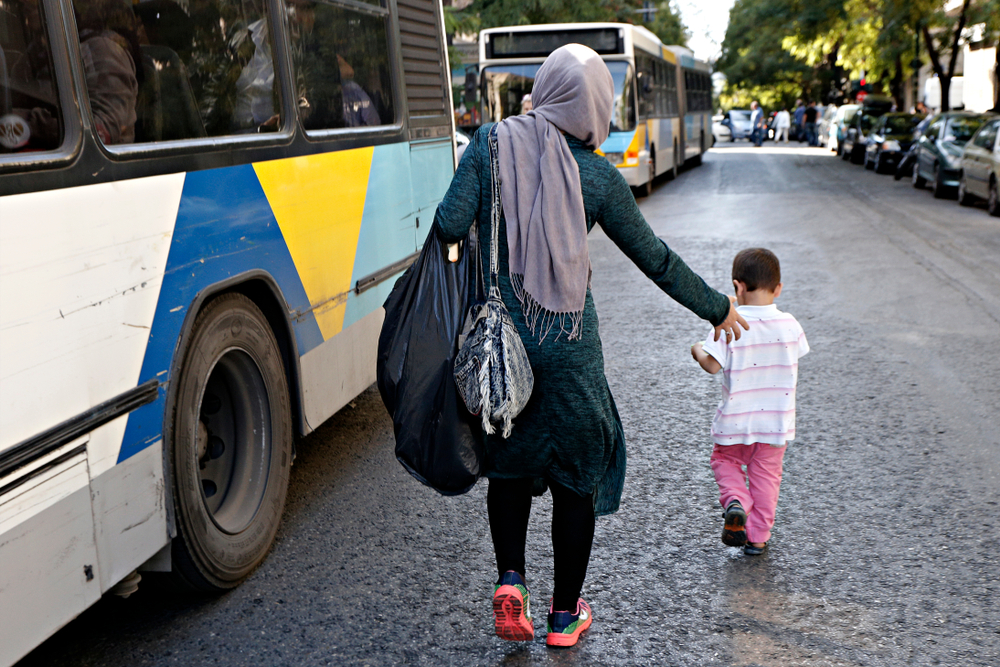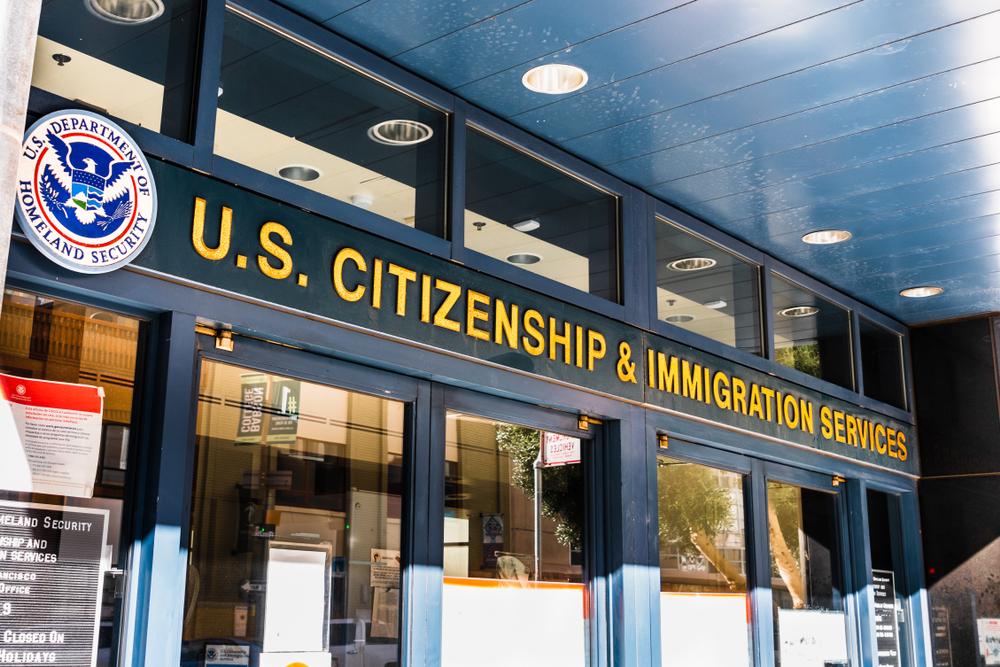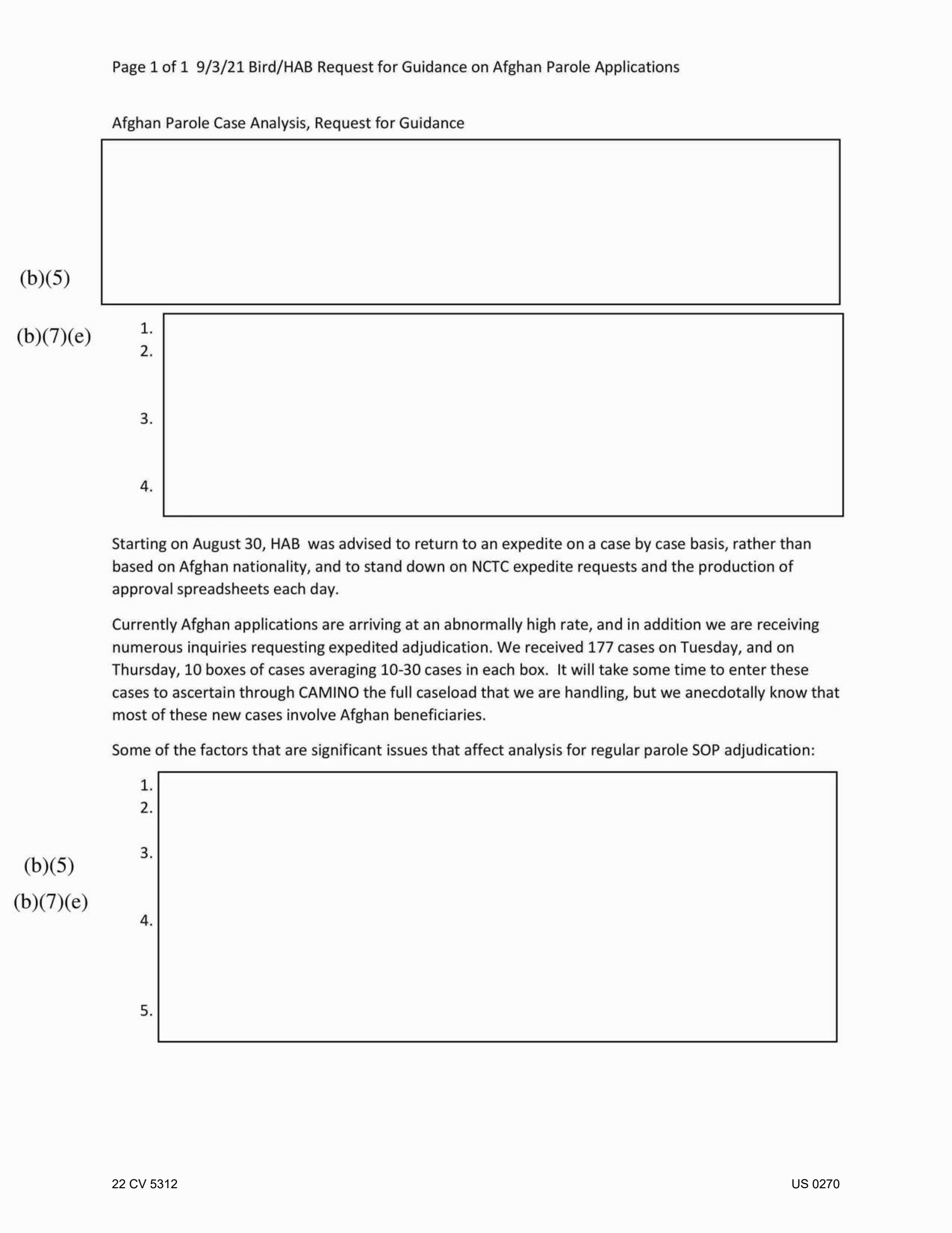Agency Failures Make Obtaining Humanitarian Parole Almost Impossible for Afghans

In July 2021, the Biden administration announced that the United States’ military mission in Afghanistan would conclude in August of that year. During those final days of U.S. military presence, the Taliban rapidly gained control of Afghanistan, killing civilians in their path and prompting many Afghans to flee their homes for safety. As the U.S. military departed the country, many Afghans who were left behind in danger—as well as their families and friends in the United States—turned to the Department of Homeland Security’s (DHS) humanitarian parole process for safe passage. For Afghan nationals who managed to reach U.S. ports of entry during this period, U.S. Customs and Border Protection (CBP) allowed them to enter by granting them parole at ports of entry, known as port parole. Thousands of others who could not reach the United States at that time were forced to apply for humanitarian parole through the traditional way of submitting an application with U.S. Citizenship and Immigration Services (USCIS).
However, Afghan nationals began to see massive delays in the adjudication of their humanitarian parole applications. Government statistics show that from January 1, 2020 to April 6, 2022, USCIS—the agency in charge of adjudicating humanitarian parole applications—received 44,785 applications where the applicant’s country of citizenship was Afghanistan, and only approved 114 of those applications, or less than 0.3%. This bottleneck of applications essentially foreclosed this benefit as a potential option for those Afghans who could not reach the United States, many of whom remained in Afghanistan.
The American Immigration Council, along with the International Refugee Assistance Project, filed requests for records under the Freedom of Information Act (FOIA) to explain the cause of these extensive delays.
Documents gathered thus far as a result of litigating this request show that USCIS was woefully unprepared to process these applications and that the agency implemented a prolonged pause in the adjudication process. Further, documents suggest the agency changed the adjudication process for humanitarian parole in significant ways during this time. Additionally, documents show that the agency scrapped plans to waive the application fees that make this process cost-prohibitive for so many recently arrived Afghan families.
These documents paint a clear picture of why humanitarian parole has become ineffective for thousands of Afghans who and are still looking to reach safety.
What is the Humanitarian Parole Process?
Requests for humanitarian parole for people living abroad generally are submitted on Form I-131 and adjudicated by USCIS. In this process, the person who lives abroad seeking entry into the United States is the “Beneficiary.” The individual who submits the application is known as the “Petitioner.” Because individuals can request humanitarian parole for themselves or on behalf of another, in some cases the beneficiary is also a “Self-Petitioner.”
Government agencies also can request parole for a foreign national living abroad without the need to submit Form I-131. According to the 2017 International Operations Officer Training Course, this option requires the agency requesting parole to present documents attesting that the beneficiary’s presence in the United States is for urgent humanitarian or significant public benefit reasons. The latter includes national security, advancing foreign policy goals, or other benefits to the United States. A government agency requests parole on behalf of the beneficiary directly from USCIS’ International Operations Division.
USCIS received both agency requests for humanitarian parole on behalf of Afghan nationals, as well as applications submitted on behalf of Afghan beneficiaries.
The events that led to the break down
August 2021 - "Drop everything"
As chaos consumed Kabul in August 2021 during the final days of the U.S. military presence in Afghanistan, USCIS officials scrambled to manage the unfolding crisis. On August 13, agency officials received instructions to exclusively process Afghan parole cases, and the Chief of the Humanitarian Affairs Branch, John W. Bird, instructed staff the next day to:
Yet, this was too late. Only hours after sending instructions on how to prioritize Afghan parole cases, the agency had to change its course of action because “folks are leaving sooner than planned” and “regular parole processing will not be available through Kabul.”
During this time, the agency developed informational materials for Afghan nationals evacuated from Afghanistan who would be granted parole at U.S. ports of entry. Agency emails suggest that as of August 25, however, USCIS had not developed a plan for Afghan parolees who were not part of the evacuation process.
Emails from August 25 also show how USCIS scrambled to address the number of Afghan humanitarian parole applications, implementing several changes to how it processed these applications.
As the government sought to get people out of Afghanistan on evacuation flights, USCIS originally treated all Afghan humanitarian parole requests as expedited, which meant they should have been processed faster. USCIS discussed plans to quickly submit the name of evacuated individuals on an expedited basis for agency checks so that these checks could be done within 24 hours “due to the urgency of the situation.”
On August 31, the day the U.S. embassy in Kabul closed, the agency changed course and instructed staff to stop sending daily reports requesting expedited checks.
September 2021 – Applications arrive at an “abnormally high rate” but placed on hold.
The next day, officials made the decision that the agency would no longer expedite all Afghan parole requests, stating that the decision to expedite cases initially was about getting people out on flights. Since the flights ended, the agency decided it needed to go back to the “normal” expedited process based on triage rather than nationality.
On September 3, USCIS officials in the Humanitarian Affairs Branch (HAB) requested guidance about analysis for Afghan parole cases, explaining that, “Afghan applications are arriving at an abnormally high rate,” with “numerous inquiries requesting expedited adjudication.” HAB stated that it “was advised to return to an expedite on a case by case basis, rather than based on Afghan nationality” and to “stand down on [] expedite requests.”
Then, on September 7, despite the large volume of applications received, USCIS informed staff to “hold all decisions on Afghan parole cases.” In an e-mail to the HAB staff, Chief of HAB, John Bird, was adamant that staff should “NOT” send final approval or denials to the U.S. Department of State. USCIS reiterated that “[t]his hold only applies to Afghan cases.”
Additionally, USCIS acknowledged it would have to use a different process for vetting applicants. In a September 7 email, Joanna Ruppel, Chief of the International and Refugee Affairs Division, acknowledged that the agency was reviewing how to vet the applicants since they could no longer use the vetting process that applied to evacuees, and indicated that there was no deadline in place by which this determination had to be made.
These emails demonstrate that the agency showed little urgency in processing humanitarian parole applications for those individuals who remained in Afghanistan, even as agency officials acknowledged that USCIS was receiving humanitarian parole applications at an “abnormally high rate.”
During September 2021, records show that USCIS officials considered exempting fees associated with filing Form I-131 for Afghan nationals.
However, a September 13 email suggests that USCIS ultimately decided not to include the form in its fee waiver policy.
And a review of USCIS’ final memo regarding fee exemptions for Afghan parolees does not include a mention of fee waivers for Form I-131.
Further, an email exchange between agency officials on September 17 indicates that the U.S. government added a “new” medical screening step for the process of parole.
By September 27, the agency appeared to be preparing to deny humanitarian parole applications filed on behalf of Afghan nationals as a matter of course. Agency staff drafted a template denial notice for cases where:
On September 29, USCIS planned to update the agency’s website to reflect some of these changes.
October 2021 – Applicants struggle through the process.
Agency officials acknowledged in an email from October 5 that applicants were struggling with Form I-131. Some of the issues observed were mistakes related to where the applicants signed the form, the forms were signed electronically, or missing addresses. These issues lead to rejections. The email also highlighted issues Afghans encountered in completing fee waiver requests for these applications, which led to the rejection of the fee waiver requests.
At the end of October, USCIS finally was ready to lift the nearly two-months hold on humanitarian parole adjudications and move forward “to begin to deny cases for those who are ineligible.” At this time, the agency also suggested prioritizing processing applications for those individuals outside Afghanistan. Accordingly, the agency would need to update their standard operating procedures (SOP) and its website.
February 2022 – Changes are made.
By February 2022, it is evident from records obtained that USCIS changed certain aspects of its protocols to review humanitarian parole applications. Emails show that USCIS personnel convened a meeting to relay direction from the secretary to develop ways to “better address protection needs of vulnerable Afghans.” The email informing agency staff about this meeting contains an attachment with a Lesson Plan on the humanitarian parole element of “targeted harm.” The name of that document shows the lesson plan was revised in February 2022. The email goes on to state that once the changes have been finalized, the agency would revise the Afghan specific materials, the standard operating procedures, and the agency’s public facing materials.

The Results
This shifting landscape led to dismal statistics about the number of applications for humanitarian parole that USCIS approved for Afghan nationals. A March 17, 2022 report to the Congressional Research Service states that in Fiscal Year 2021, USCIS adjudicated 79 parole applications including both I-131 applications and government requests. The agency approved 67 of those applications and denied 5. The report also shows that during Fiscal Year 2022 up to March 4, 2022, USCIS had adjudicated 2,633, denying 2,251 of those applications. During this time period, the agency conditionally approved 150 of the applications submitted, or approximately 5%. Only 35 of those were of I-131 applications, while 115 were government requests and thousands have not yet been adjudicated.
Government statistics covering a slightly different time period tell the same story. From January 1, 2020, to April 6, 2022, USCIS received 44,785 applications where the applicant’s country of citizenship was Afghanistan, and only approved 114 of those applications.
Notably, government figures show that between March 1, 2021, and March 22, 2022, USCIS received over $19 million from humanitarian parole applications filed on behalf of Afghan nationals.
These figures show that it was extremely difficult for Afghan applicants who directly requested humanitarian parole through the I-131 process to have their cases adjudicated even though the agency collected extensive fees from these applications. Applicants’ best chances for being approved for humanitarian parole were when a U.S. agency requested the parole, an avenue that was available to only a handful of Afghans.
The developments in the humanitarian parole process revealed through government records highlight the insurmountable odds faced by Afghan nationals trying to reach the United States. It is evident from the available documents that USCIS was not prepared to adjudicate the high volume of humanitarian parole applications from Afghans who did not make it on those early flights to the United States. The shifts in adjudication protocols with no notice to the public, including USCIS’ de-prioritization of processing applications from individuals who remained in Afghanistan and the temporary hold placed on adjudications in light of the high volume of applications received, undoubtedly contributed to the delays in adjudications. These circumstances, and not just the volume of applications, are the reason why humanitarian parole has failed to provide a feasible avenue for relief to vulnerable Afghans who have not been able to reach the United States.

